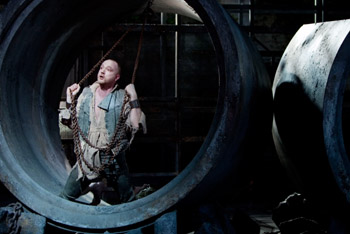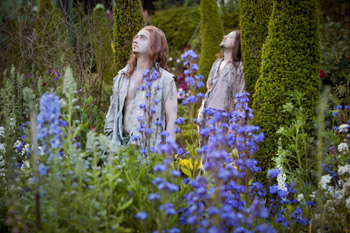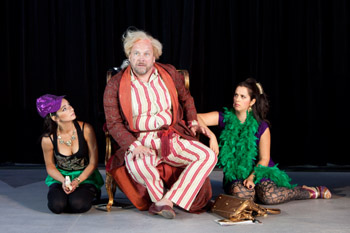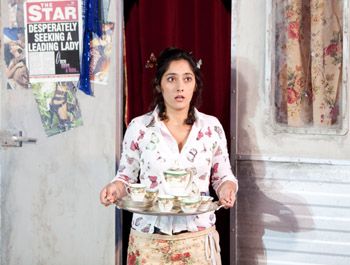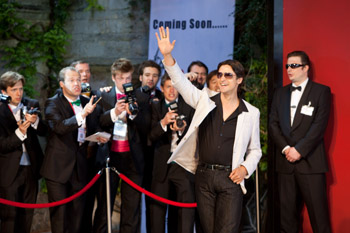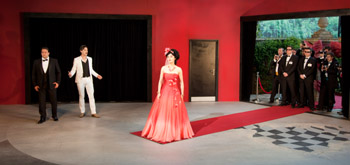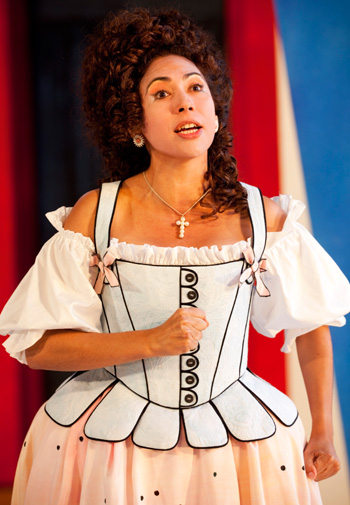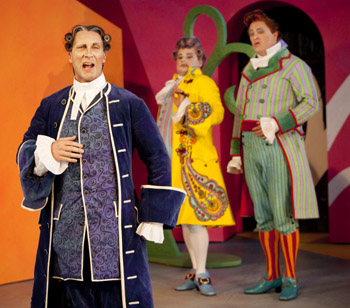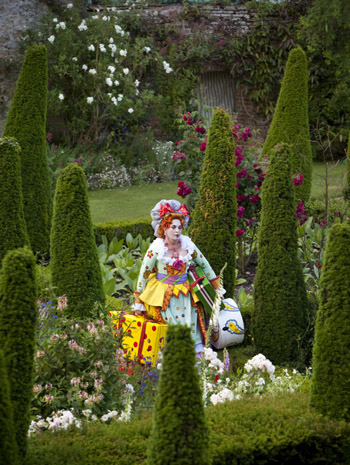June 18, 2009
Mirandolina
running until 5th July
Mirandolina is a bright, sparkling, funny comic-opera adaptation of Carlo Goldoni’s La Locandiera, to which it owes many of the elements that make this production a delight. It has an irresistibly naughty heart-breaking heroine, her silly aristocratic suitors, her faithful, sweet-natured true-love; it has a classic eighteenth-century drawing-room comedy plot, which should have the universal sub-title ‘Who Is She Going To Marry?’ (Oh, all right then, ‘Whom’), and a witty combination of battle-of-the-sexes with Plautian duping-of-the-upper-classes. running until 5th July
On the face of it, it’s exactly the sort of frivolous confection that made Beethoven despise opera. But almost in spite of himself, Martinú (who described it as a ‘light, uncomplicated thing’) has included some serious meat among the amuse-bouches.
A brief synopsis: Mirandolina is an inn-keeper – young, beautiful, highly intelligent – an independent woman with a successful business. Two idle aristocrats are competing with one another to seduce her; both claim to be madly in love with her. Mirandolina is always a comfortable three steps ahead of them, when she is presented with a challenge she can’t resist : making a dent in the heart of woman-hating Cavaliere Ripafratta. He loathes all women for their flattery, lying, and deceit.
Mirandolina engages his attention by her startling candour about the games she is playing with Forlimpopoli and Albafiorita, before using her dazzling charm and wit to flatter and deceive Ripafratta into falling in love with her. But she has poked a tiger; Ripafratta is not playing a game, he’s feeling all the passionate intensity of first love, combined with the seigneurial privilege of his rank. He is furiously angry when Mirandolina rejects him.
She has already made it clear in Act I that the man she really prefers is Fabrizio, her waiter; but she won’t marry him because she doesn’t want to lose her freedom and independence. In Act III however, terrified that the angry Ripafratta might break into the house and attack her, she begs Fabrizio to marry her; she now needs a protector. The play ends with a playful warning to the audience to beware the wiles of women; but actually you do feel you’ve witnessed the crushing of a playful human spirit by the cruel boot of the patriarchal establishment.
But I don’t want to make too much of this. This production emphasises the theatricality of its own fictive world by almost surreal set-design, brilliant Mediterranean colours, delicious opera-buffa costumes and old-style vaudeville make-up and lighting. Only Mirandolina herself, Fabrizio, and Ripafratta look like real people experiencing real feelings.
Juanita Lascarro was just extraordinarily beautiful and charismatic as Mirandolina, easily dominating the stage with her saucy sex-appeal (I’d love to see her as Carmen), but not overdoing the flashing eyes and heaving bosoms – a performance of restraint and dignity. Perhaps there could have been a bit more actual flirting between her and Ripafratta; some potentially explosive moments were let go, such as the climactic scene when he lifts her into his arms after she has pretended to faint, and is overpowered by his feelings.
The new English translation, very witty and pleasingly articulate, was as clear as a bell, though we still had the assistance of surtitles. I can’t comment on the music, being unfortunately deaf to the musical idiom of twentieth-century opera, except to say that everyone else enjoyed it very much, and it didn’t interfere too badly with my enjoyment of this otherwise delightful production. I understand there are still one or two seats left, and thoroughly recommend opera-lovers to snap them up as fast as possible.




